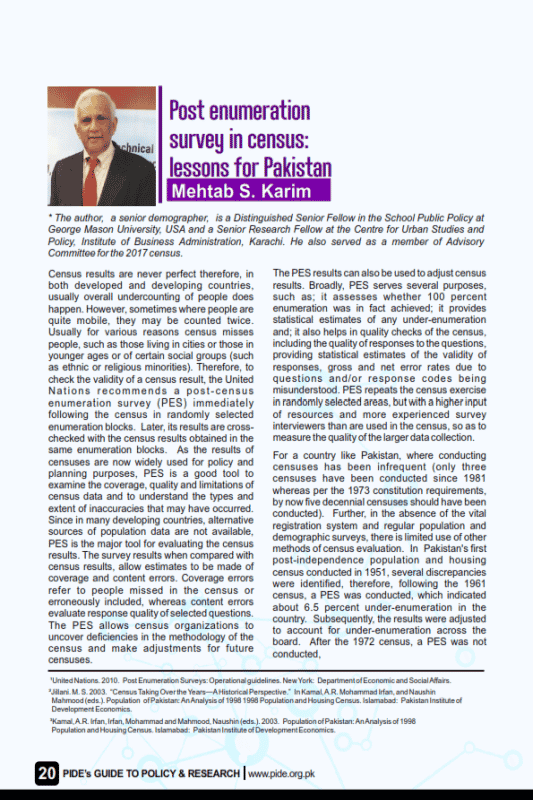Post enumeration survey in census: lessons for Pakistan
Census results are never perfect therefore, in both developed and developing countries, usually overall undercounting of people does happen. However, sometimes where people are quite mobile, they may be counted twice. Usually for various reasons census misses people, such as those living in cities or those in younger ages or of certain social groups (such as ethnic or religious minorities). Therefore, to check the validity of a census result, the United Nations recommends a post – census enumeration survey (PES) immediately following the census in randomly selected enumeration blocks. Later, its results are crosschecked with the census results obtained in the same enumeration blocks. As the results of censuses are now widely used for policy and planning purposes, PES is a good tool to examine the coverage, quality and limitations of census data and to understand the types and extent of inaccuracies that may have occurred. Since in many developing countries, alternative sources of population data are not available, PES is the major tool for evaluating the census results. The survey results when compared with census results, allow estimates to be made of coverage and content errors. Coverage errors refer to people missed in the census or erroneously included, whereas content errors evaluate response quality of selected questions. The PES allows census organizations to uncover deficiencies in the methodology of the census and make adjustments for future censuses.




